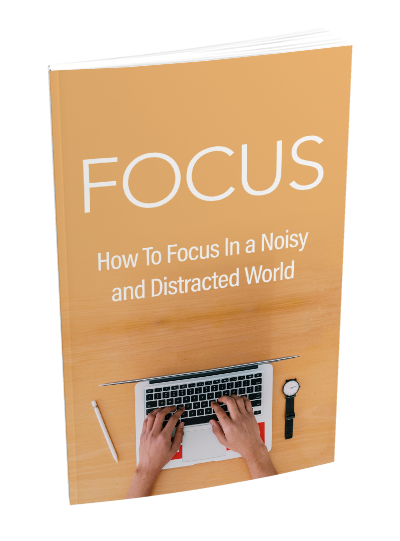Free Training & Career Tips... Subscribe to Get Weekly Career Tips

By Subscribing You are Agreeing to Terms and Conditions

Professor Mark Gillman is a world authority (see brief CV, below) on this simple but effective technique. He trains doctors, dentists and registered nurses to use nitrous oxide for conscious sedation and the treatment of substance abuse.
This is a practical course in Nitrous Oxide/Oxygen Sedation. Key outcomes of this course include:
Introduction
Historical Overview
Overview of Clinical Uses of Nitrous Oxide/Oxygen Sedation
Concept of Anxiety and Pain
Basic Physiology of Pain and the Endogenous Opioid System
Nitrous oxide interactions with the Endogenous opioid system and this relationship to Pain
and Anxiety Control
Methods of Pain & Anxiety Management and Nitrous Oxide/Oxygen Sedation
Differences between Nitrous Oxide/Oxygen Sedation and General Anaesthesia
Physical & Chemical Properties in relation to Nitrous Oxide/Oxygen Sedation
Clinical Respiratory Anatomy Physiology & Nitrous Oxide/Oxygen Sedation
Pharmacology of Nitrous Oxide/Oxygen Sedation
Practical Aspects of Nitrous Oxide/Oxygen Sedation
A. Patient Assessment
B. Importance of Titration
C. Monitoring Patient
D. Patient Involvement
E. Endpoint/Comfort Zone (Ethics of using correct concentration)
F. Terminating Administration
G. Patient Recovery
H. Customised Equipment (Safety, Pollution Control & Ethics)
Section B
Ethical considerations and aspects of Nitrous Oxide/Oxygen Sedation (1/2hr)
a. Ethical responsibilities.
b. Ethical prudent practice guidelines
c. Ethical practise building and profit aspects
Part 1 (Sexctions A and B) will be assessed by 20 questions for which a 75% pass rate must
be achieved to qualify for 8 CPD points by home study.
Revision Lecture 30 minutes – highlighting important practical, ethical and theoretical
aspects (60 min)
Practical Demonstration of Nitrous Oxide/Oxygen Sedation Technique (with delegate
participation – duration 2-3 hours with emphasis on Ethical Aspects of using the technique
correctly
Questions on Nitrous Oxide/Oxygen Sedation
Conclusion
Question Time
Outcome

The practical training is usually done in Johannesburg for up to five delegates. Larger numbers of delegates can be trained at any one of the main centres with direct access to daily air flights to and from Johannesburg.
Prof Mark Gillman is an internationally renowned scholar and brain researcher and has lectured on conscious sedation with nitrous oxide to lay and scientific audiences locally and internationally over 250 times. He has over 300 publications including 5 full-length books, and a best-selling CD on the technique of conscious sedation with nitrous oxide. He has held a number of senior academic appointments (e.g. Wits, Medunsa, Albert Einstein University Medical School [New York], Panum Institute [Denmark] etc). As a scientific authority he has been interviewed frequently for local and international print and electronic media including the BBC. He has held editorial advisory appointments to many leading medical and scientific journals including Lancet, BMJ, International Journal of Neuroscience, Biological Psychiatry etc). He was (1982 -2013), CEO of the S.A. Brain Research Institute (SABRI).
Using conscious sedation with nitrous oxide at SABRI, he and colleagues discovered the new principle of biology (Gaseous neurotransmission). They also uncovered endorphin links to human sexual response, anorexia nervosa, Tourette syndrome and a treatment for substance abuse with nitrous oxide sedation recognised by SADA, SAMA & HPCSA.
This is a Training course for professionals and is designed for medical practitioners (dentists, doctors and other medical professionals).
Registered medical practitioner.

Nitrous oxide/Oxygen Conscious Sedation Training by Prof Mark Gillman
1) A virtual text book is available which consists of 255 Microsoft PowerPoint slides with commentary by Prof Gillman at a cost of R1150.00, plus R145 for courier delivery in South Africa. The disk gives a good background to the theoretical aspects of nitrous oxide/oxygen sedation technique and must be studied and the MCQ passed before the practical training.
2) The CD is required for each and every participant attending the practical training.
3)Completion of the CPD questionnaire supplied with the disc with a pass of 75% or more provides 8 (eight) CPD points including 1 (one) ethical.
4) Practical training is then done in Johannesburg at Professor Gillman’s Office. The cost depends on the number of participants. A single participant is R5500 (Five Thousand Five Hundred Rand) plus R2250 (Two Thousand Two Hundred Rand) per each additional participants up to a maximum of 5 participants in total. Prof Gillman also offers courses throughout South Africa provided there are sufficient numbers of participants and the costs of travel are covered by the trainees.
Attendance at this course provides 2 (two) CPD points including 1 (one) ethical.
1. After receiving the CD, is there any other textbooks that are needed?
No, the CD is a Textbook. However, other textbooks are available that might be useful for
candidates who want other perspectives.
2. The tests, are the written and the practical both done in Johannesburg?
No. The test will accompany the Disc, unless there are more than one participant at a single
practical training session. If you are a sole participant you complete it and email a copy with
the answers marked and Prof Gillman will correct it. To get the 8 CPD points you need 75%
on the MCQ.
If there are more than one participants at a single practical training session, the CPD test will
be done in Johannesburg just prior to the practical training.
3. What about equipment, do we need that now?
Ideally yes. But if you don’t already have it, Prof Gillman recommends that you should get it
ASAP and certainly before undertaking the Practical so that you don’t forget the technique
and/or lose confidence in using it.
4. Does the course cover nitrous oxide and ketamine and propofol i.e. other forms of
sedation?
Definitely NOT. It is only for Nitrous oxide/oxygen conscious sedation.
5. If I pass the CPD theoretical course with 75% and attend a practical session with Prof
Gillman will I be qualified to use the nitrous oxide/oxygen conscious sedation in my
practice?
Yes.
Book Now!In addition to the related public courses, we offer the above course across the country: Anytime, Anywhere. Click on the link to get an instant proposal or book your course NOW:
Or alternatively click on the button below to view our full Public Course Calendar of close to 100 events:

Copyright text 2024 by Business Optimization Training Institute.